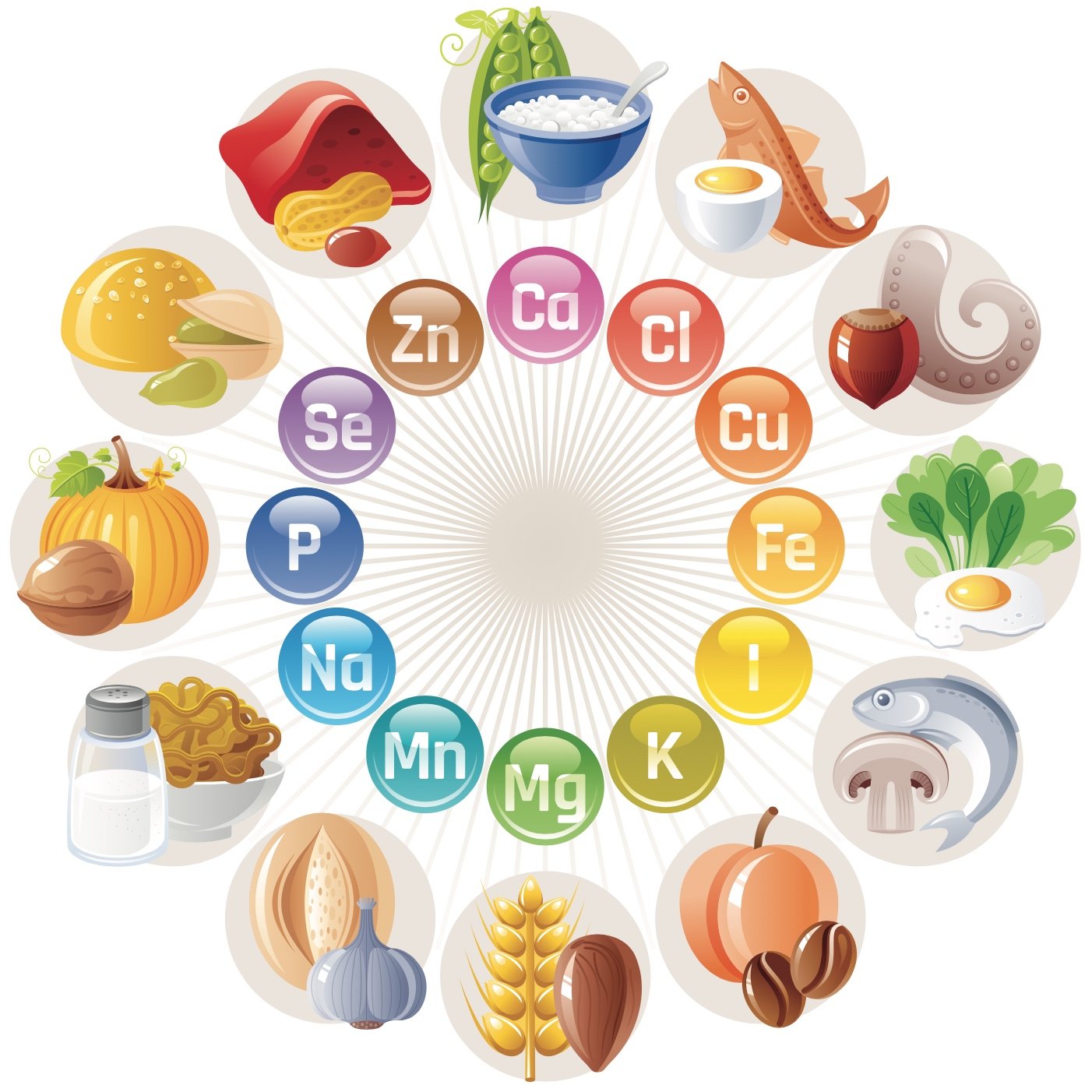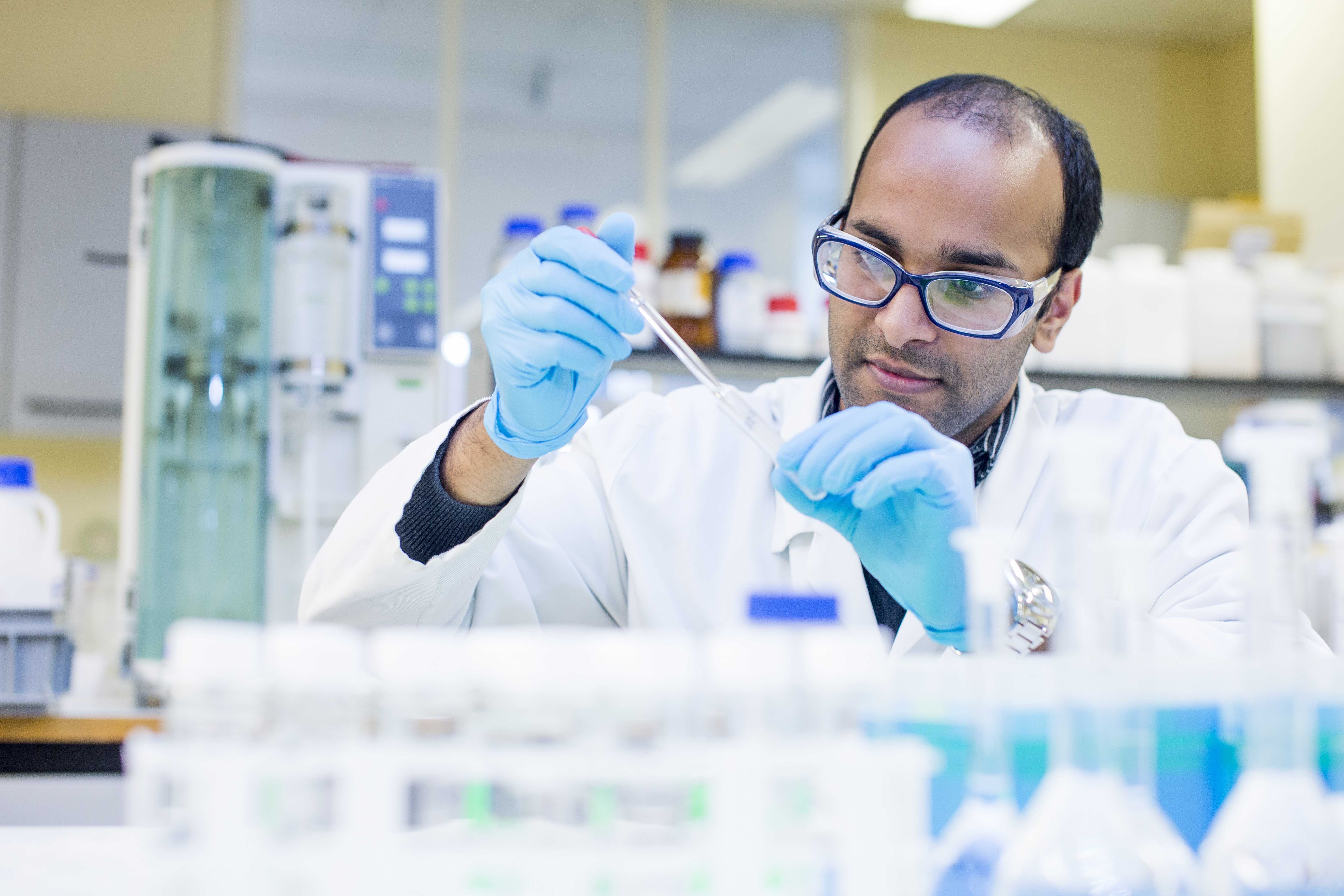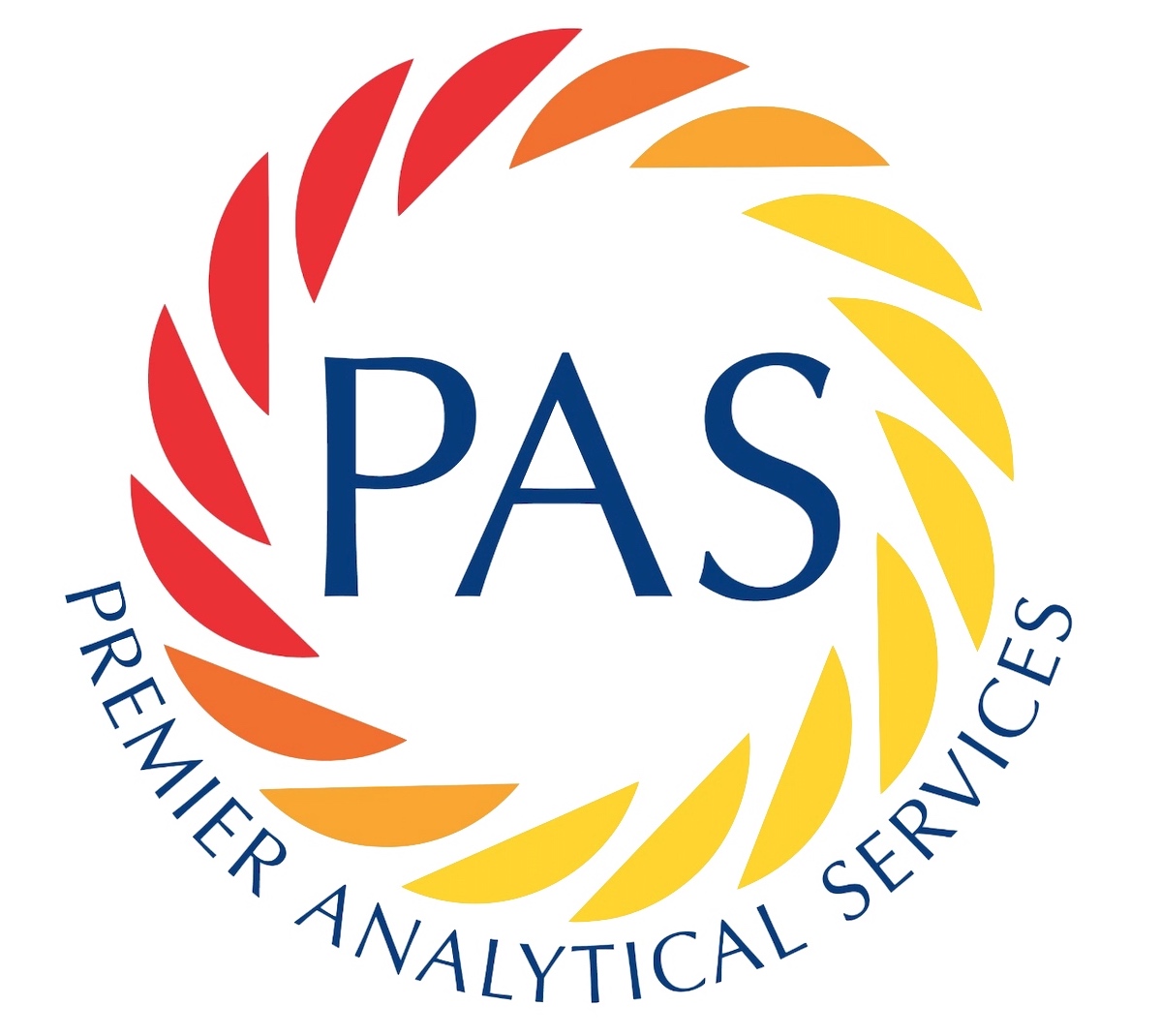Vitamins, Minerals & Additives
Premier Analytical’s Comprehensive Vitamins and Minerals Service offers rapid, reliable and accurate results on which to base your claims.
At Premier Analytical Services, one of the leading food testing laboratories in Europe, we understand how important claims are when it comes to the promotion of your fortified food products. This is why we endeavour to provide you with a quality service which offers:
- Consultancy advice
- Comprehensive scope of UKAS accredited analyses
- Rapid, reliable results and interpretation
- In house shelf-life tests to study the degradation of vitamins under a controlled environment.
Our Comprehensive Vitamins and Minerals Service, a quality service tailored to meet your needs
All part of the comprehensive vitamins and minerals service


The Commission of the European Communities has recently released a proposal on regulating the addition of minerals and vitamins to foods and the nutritional labelling required for such products. This is becoming an increasingly complex area wherein the potential for error is very high. Premier Analytical Services can help you get it right first time by offering you expert advice that will answer questions such as:
What substances can be added to foods?
What are the maximum and minimum amounts for each vitamin and mineral that can be added to foods?
Do the claims you make on pack or in advertising trigger compulsory nutrition labelling?
What should be included in the declaration and what format and layout should be used?
Vitamins are unstable substances that are easily destroyed, either during manufacture or whilst the product is on-shelf. Premier Analytical Services can help you plan and carry out extensive shelf-life tests on your products to study the “survival” of the vitamins under a controlled environment.
Minerals
Minerals
|
Minerals |
|
|
|
|
|
UKAS Accredited |
Limit of |
Limit of Quantification |
|
|
|
Detection |
|
|
NUTRITION – MINERALS |
|
|
|
|
Minerals – Metals |
|
|
|
|
Calcium |
Yes |
2.2mg/kg |
5.5mg/kg |
|
Copper |
Yes |
0.1mg/kg |
0.3mg/kg |
|
Iron |
Yes |
0.3mg/kg |
0.8mg/kg |
|
Magnesium |
Yes |
0.5mg/kg |
1.4mg/kg |
|
Manganese |
Yes |
0.1mg/kg |
0.2mg/kg |
|
Potassium |
Yes |
1.0mg/kg |
3.2mg/kg |
|
Sodium |
Yes |
2.8mg/kg |
2.8mg/kg |
|
Zinc |
Yes |
0.2mg/kg |
0.2mg/kg |
|
Minerals – Non-Metals |
|
|
|
|
Phosphorous |
Yes |
30.0mg/kg |
40.0mg/kg |
|
Iodine |
Yes |
0.04 mg/kg |
0.2 mg/kg |
Vitamins
Fat Soluble
|
UKAS Accredited |
Lower Reporting Limits |
Minimum Sample Size |
||
|
Vitamin A We determine vitamin A as the sum of the contributions of retinol (animal origin) and Beta carotene (plant origin – 1 molecule can be cleaved by a specific intestinal enzyme into 2 molecules of Vit A-retinol). We test for both of these where applicable but if there is no carotene expected e.g in a fortified milk powder then we will just run the retinol determination. |
Yes |
10 µg/100g |
50g |
|
| Vitamin E |
Yes |
0.5 mg/100g |
50g |
|
|
Vitamin D Measurement of cholecalciferol (D3 from animal sources) and ergocalciferol (D2 from plant sources). Vitamin D present naturally or added in fortified foods as vitamin D3 is determined using vitamin D2 as internal standard. Alternatively, vitamin D2 may be determined in the absence of vitamin D3 using vitamin D3 as internal standard. Vitamin D2 (ergocalciferol) and vitamin D3 (cholecalciferol) are saponified with alcoholic potassium hydroxide and extracted into hexane/diethyl ether. The vitamin D2 and D3 are measured using HPLC with UV detection. |
Yes |
0.3 µg/100g |
50g |
Please refer to the UKAS Schedule of Accreditation for the specific matrices.
Water Soluble
|
|
Lower Reporting Limits |
|
Minimum Sample Size |
|
|
UKAS Accredited |
|
|||
|
Water soluble |
|
|
|
|
|
Vitamin B1 (Thiamin) |
Yes |
0.05 mg/100g |
|
50g |
|
Vitamin B2 (Riboflavin) |
Yes |
0.03 mg/100g |
|
50g |
|
Method: Riboflavin is extracted by digestion with hydrochloric acid under autoclave conditions, followed by incubation with an enzyme mixture containing both phosphatase and amylase activity. Riboflavin is separated by ion-pair HPLC and determined using fluorescence detection. |
||||
|
Total Vitamin B3 (Niacin/ Nicotinamide/ Nicotinic acid. N.B. same vitamin activity) |
Yes |
0.1 mg/100g |
|
50g |
|
Method: by LC/MS-MS |
|
|
|
|
|
Nicotinamide and nicotinic acid are individually determined using isotopic internal standards and total Vitamin B3 expressed as the sum of these two. |
|
|
|
|
|
Vitamin B5 Pantothenic Acid |
Yes |
0.1 mg/100g |
|
50g |
|
Vitamin B6 (Pyridoxine) |
Yes |
0.02 mg/100g |
|
50g |
|
Added Vitamin B9 (Added Folic Acid ) (N.B. We cannot measure Total Folate = Natural Folate + Added Folic acid) |
Yes |
20 µg/100g |
|
50g |
|
Vitamin B12 (Cobalamin ) by LC/MS.MS |
Yes |
0.3µg/100g |
|
50g |
|
Vitamin C (Ascorbic Acid) The vitamin C content is determined as the sum of ascorbic acid (AA) and dehydroascorbic acid (DHAA) . These compounds are extracted into an EDTA/sulphuric acid solution, the AA oxidised to DHAA, the total DHAA derivatised and measured by high performance liquid chromatography with fluorescence detection. |
Yes |
0.1 mg/100g |
|
|
Additives
Preservatives
|
UKAS Accredited |
Limit of Detection |
Minimum Sample Size |
|||
| Benzoate | Using GC |
Yes |
50ppm |
50g |
|
| Sorbate | Using GC |
Yes |
50ppm |
50g |
|
| Sulphur dioxide | Sulphur dioxide is determined by a procedure based on the modified Monier-Williams method -distillation of SO2 into a hydrogen peroxide trapping solution. This is followed by highly specific determination of the sulphate produced using ion chromatography (i.e. NOT TITRATION which is less specific). |
Yes |
2mg/Kg |
50g |
|
| Acetic acid | By size-exclusion ion-chromatography/conductivity detection. |
Yes |
50ppm |
50g |
|
| Propionic acid |
Yes |
50ppm |
50g |
||
| Lactic acid |
No |
50ppm |
50g |
||
| Succinic acid |
No |
50ppm |
50g |
||
Please refer to the UKAS Schedule of Accreditation for the specific matrices.
Sweeteners
|
Sweeteners |
|
|
|
|
|
|
|
|
|
|
UKAS Accredited |
Limit |
Minimum Sample Size |
|
|
|
|
|
|
of |
|
|
|
|
|
|
|
Detection |
|
|
|
Aspartame |
Analysed together as a suite or separately |
|
Yes |
10ppm |
50g |
|
|
Acesulfame-k |
|
|
Yes |
10ppm |
50g |
|
|
Saccharin |
|
|
Yes |
10ppm |
50g |
|
|
Stevia |
These are the natural sweeteners derived from the stevia leaf. We currently measure the two main glycosides, rebaudioside A and stevioside. |
Yes |
1mg/100g |
|
|
|
Emulsifiers
|
UKAS Accredited |
Limit of Detection |
Minimum Sample Size |
|||
|
Polyphosphates as P2O5 (by ion-exchange chromatography) |
Solid phase extraction to remove organic phosphates is carried out. Thereafter inorganic phosphate (P04) is measured by Ion-exchange chromatography before and after hydrolysis. The difference is then expressed as Polyphosphate P205 in line with additive regulations. |
No |
0.4g/kg |
50g |
|
Please refer to the UKAS Schedule of Accreditation for the specific matrices.
Vitamins, Minerals & Additives
Premier Analytical’s Comprehensive Vitamins and Minerals Service offers rapid, reliable and accurate results on which to base your claims.
At Premier Analytical Services, one of the leading food testing laboratories in Europe, we understand how important claims are when it comes to the promotion of your fortified food products. This is why we endeavour to provide you with a quality service which offers:
- Consultancy advice
- Comprehensive scope of UKAS accredited analyses
- Rapid, reliable results and interpretation
- In house shelf-life tests to study the degradation of vitamins under a controlled environment.
Our Comprehensive Vitamins and Minerals Service, a quality service tailored to meet your needs
All part of the comprehensive vitamins and minerals service

The Commission of the European Communities has recently released a proposal on regulating the addition of minerals and vitamins to foods and the nutritional labelling required for such products. This is becoming an increasingly complex area wherein the potential for error is very high. Premier Analytical Services can help you get it right first time by offering you expert advice that will answer questions such as:
What substances can be added to foods?
What are the maximum and minimum amounts for each vitamin and mineral that can be added to foods?
Do the claims you make on pack or in advertising trigger compulsory nutrition labelling?
What should be included in the declaration and what format and layout should be used?
Vitamins are unstable substances that are easily destroyed, either during manufacture or whilst the product is on-shelf. Premier Analytical Services can help you plan and carry out extensive shelf-life tests on your products to study the “survival” of the vitamins under a controlled environment.

Minerals
Minerals
|
Minerals |
|
|
|
|
|
UKAS Accredited |
Limit of |
Limit of Quantification |
|
|
|
Detection |
|
|
NUTRITION – MINERALS |
|
|
|
|
Minerals – Metals |
|
|
|
|
Calcium |
Yes |
2.2mg/kg |
5.5mg/kg |
|
Copper |
Yes |
0.1mg/kg |
0.3mg/kg |
|
Iron |
Yes |
0.3mg/kg |
0.8mg/kg |
|
Magnesium |
Yes |
0.5mg/kg |
1.4mg/kg |
|
Manganese |
Yes |
0.1mg/kg |
0.2mg/kg |
|
Potassium |
Yes |
1.0mg/kg |
3.2mg/kg |
|
Sodium |
Yes |
2.8mg/kg |
2.8mg/kg |
|
Zinc |
Yes |
0.2mg/kg |
0.2mg/kg |
|
Minerals – Non-Metals |
|
|
|
|
Phosphorous |
Yes |
30.0mg/kg |
40.0mg/kg |
|
Iodine |
Yes |
0.04 mg/kg |
0.2 mg/kg |
Vitamins
Fat Soluble
|
UKAS Accredited |
Lower Reporting Limits |
Minimum Sample Size |
||
|
Vitamin A We determine vitamin A as the sum of the contributions of retinol (animal origin) and Beta carotene (plant origin – 1 molecule can be cleaved by a specific intestinal enzyme into 2 molecules of Vit A-retinol). We test for both of these where applicable but if there is no carotene expected e.g in a fortified milk powder then we will just run the retinol determination. |
Yes |
10 µg/100g |
50g |
|
| Vitamin E |
Yes |
0.5 mg/100g |
50g |
|
|
Vitamin D Measurement of cholecalciferol (D3 from animal sources) and ergocalciferol (D2 from plant sources). Vitamin D present naturally or added in fortified foods as vitamin D3 is determined using vitamin D2 as internal standard. Alternatively, vitamin D2 may be determined in the absence of vitamin D3 using vitamin D3 as internal standard. Vitamin D2 (ergocalciferol) and vitamin D3 (cholecalciferol) are saponified with alcoholic potassium hydroxide and extracted into hexane/diethyl ether. The vitamin D2 and D3 are measured using HPLC with UV detection. |
Yes |
0.3 µg/100g |
50g |
Please refer to the UKAS Schedule of Accreditation for the specific matrices.
Water Soluble
|
|
Lower Reporting Limits |
|
Minimum Sample Size |
|
|
UKAS Accredited |
|
|||
|
Water soluble |
|
|
|
|
|
Vitamin B1 (Thiamin) |
Yes |
0.05 mg/100g |
|
50g |
|
Vitamin B2 (Riboflavin) |
Yes |
0.03 mg/100g |
|
50g |
|
Method: Riboflavin is extracted by digestion with hydrochloric acid under autoclave conditions, followed by incubation with an enzyme mixture containing both phosphatase and amylase activity. Riboflavin is separated by ion-pair HPLC and determined using fluorescence detection. |
||||
|
Total Vitamin B3 (Niacin/ Nicotinamide/ Nicotinic acid. N.B. same vitamin activity) |
Yes |
0.1 mg/100g |
|
50g |
|
Method: by LC/MS-MS |
|
|
|
|
|
Nicotinamide and nicotinic acid are individually determined using isotopic internal standards and total Vitamin B3 expressed as the sum of these two. |
|
|
|
|
|
Vitamin B5 Pantothenic Acid |
Yes |
0.1 mg/100g |
|
50g |
|
Vitamin B6 (Pyridoxine) |
Yes |
0.02 mg/100g |
|
50g |
|
Added Vitamin B9 (Added Folic Acid ) (N.B. We cannot measure Total Folate = Natural Folate + Added Folic acid) |
Yes |
20 µg/100g |
|
50g |
|
Vitamin B12 (Cobalamin ) by LC/MS.MS |
Yes |
0.3µg/100g |
|
50g |
|
Vitamin C (Ascorbic Acid) The vitamin C content is determined as the sum of ascorbic acid (AA) and dehydroascorbic acid (DHAA) . These compounds are extracted into an EDTA/sulphuric acid solution, the AA oxidised to DHAA, the total DHAA derivatised and measured by high performance liquid chromatography with fluorescence detection. |
Yes |
0.1 mg/100g |
|
|
Additives
Preservatives
|
UKAS Accredited |
Limit of Detection |
Minimum Sample Size |
|||
| Benzoate | Using GC |
Yes |
50ppm |
50g |
|
| Sorbate | Using GC |
Yes |
50ppm |
50g |
|
| Sulphur dioxide | Sulphur dioxide is determined by a procedure based on the modified Monier-Williams method -distillation of SO2 into a hydrogen peroxide trapping solution. This is followed by highly specific determination of the sulphate produced using ion chromatography (i.e. NOT TITRATION which is less specific). |
Yes |
2mg/Kg |
50g |
|
| Acetic acid | By size-exclusion ion-chromatography/conductivity detection. |
Yes |
50ppm |
50g |
|
| Propionic acid |
Yes |
50ppm |
50g |
||
| Lactic acid |
No |
50ppm |
50g |
||
| Succinic acid |
No |
50ppm |
50g |
||
Please refer to the UKAS Schedule of Accreditation for the specific matrices.
Sweeteners
|
Sweeteners |
|
|
|
|
|
|
|
|
|
|
UKAS Accredited |
Limit |
Minimum Sample Size |
|
|
|
|
|
|
of |
|
|
|
|
|
|
|
Detection |
|
|
|
Aspartame |
Analysed together as a suite or separately |
|
Yes |
10ppm |
50g |
|
|
Acesulfame-k |
|
|
Yes |
10ppm |
50g |
|
|
Saccharin |
|
|
Yes |
10ppm |
50g |
|
|
Stevia |
These are the natural sweeteners derived from the stevia leaf. We currently measure the two main glycosides, rebaudioside A and stevioside. |
Yes |
1mg/100g |
|
|
|
Emulsifiers
|
UKAS Accredited |
Limit of Detection
|
Minimum Sample Size |
|||
|
Polyphosphates as P2O5 (by ion-exchange chromatography) |
Solid phase extraction to remove organic phosphates is carried out. Thereafter inorganic phosphate (P04) is measured by Ion-exchange chromatography before and after hydrolysis. The difference is then expressed as Polyphosphate P205 in line with additive regulations. |
No |
0.4g/kg |
50g |
|
Please refer to the UKAS Schedule of Accreditation for the specific matrices.
